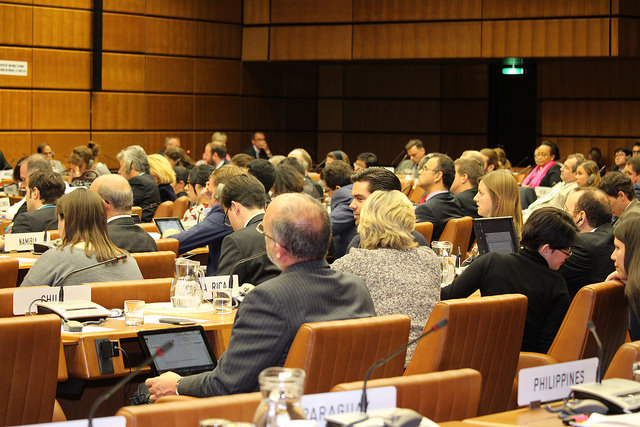VIENNA (IDN) – The UN General Assembly will hold a Special Session (UNGASS) on the world drug problem in April 2016 with a view to achieving the goal of “a better tomorrow for world’s youth”.
In preparation of this session, the International Narcotics Control Board (INCB) has reiterated the importance of a balanced approach to drug control policy and practice, in order to work towards the health and welfare objectives of the three international drug control treaties.
At the opening of the Board’s 115th session, INCB President Werner Sipp acknowledged that, “while there has been some criticism of the international drug control system, the problem has not been the treaties themselves but the fact that the treaty obligations have not been met in a consistent or balanced manner, for instance without adequate resources being devoted to preventing or treating drug abuse”.
The international drug control conventions and the Political Declarations continue to provide a solid foundation for efforts to address drug abuse, drug trafficking, and illicit drug cultivation and production, he said. “But they need to be fully implemented.”
Noting the dual objective of the treaties to ensure the availability of controlled drugs for medical and scientific use while preventing abuse, the INCB President recalled that the overarching aim of the treaties is to benefit the health and welfare of mankind, which – in view of UNGASS preparations – is the key theme of the thematic chapter of the INCB Annual Report for 2015. The Annual Report will be launched globally on March 2, 2016, together with the INCB Precursors Report for 2015.
On February 3, INCB will release a special publication on the ‘Availability of Internationally Controlled Drugs: Ensuring Adequate Access for Medical and Scientific Purposes’. At the same time, an article by members of the Board and its secretariat will be published in the medical journal The Lancet under the title ‘Use of and barriers to access to opioid analgesics: a worldwide, regional, and national study’.
INCB is meeting in Vienna from February 1 to 5 to continue its work monitoring the implementation of the three drug control conventions. During the session, the Board will deliberate upon its recent missions to China and Uruguay and review treaty compliance by Member States.
INCB is the independent, quasi-judicial body charged with promoting and monitoring Government compliance with the three international drug control conventions: the 1961 Single Convention on Narcotic Drugs, the 1971 Convention on Psychotropic Substances, and the 1988 Convention against Illicit Traffic in Narcotic Drugs and Psychotropic Substances.
Established by the Single Convention on Narcotic Drugs of 1961, the thirteen members of the Board are elected in a personal capacity by the Economic and Social Council for terms of five years.
The UN considers the Special Session an important milestone in achieving the goals set in the policy document of 2009 ‘Political Declaration and Plan of Action on International Cooperation towards an Integrated and Balanced Strategy to Counter the World Drug Problem’, which defined action to be taken by Member States as well as goals to be achieved by 2019.
In March 2014, the Commission on Narcotic Drugs (CND) conducted the high-level, mid-term review of the progress made in the implementation of the Political Declaration and Plan of Action, the results of which are included in the Joint Ministerial Statement adopted. Member States identified achievements, challenges and priorities for further action on the way to the target date of 2019.
The General Assembly has requested the CND, as the United Nations organ with the prime responsibility for drug control matters, to engage in the preparatory process for the UNGASS. In response to this request, the Commission adopted resolution 57/5, entitled “Special session of the General Assembly on the world drug problem to be held in 2016”, in which it decided to ensure an adequate, inclusive and effective preparatory process for the 2016 Special Session. [IDN-InDepthNews – 1 February 2016]
Photo credit: CND

